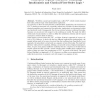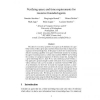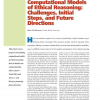109 search results - page 16 / 22 » On the difference between traditional and deductive fuzzy lo... |
FROCOS
2000
Springer
13 years 11 months ago
2000
Springer
We define a sound and complete logic, called FO , which extends classical first-order predicate logic with intuitionistic implication. As expected, to allow the interpretation of i...
ITC
2003
IEEE
14 years 20 days ago
2003
IEEE
This paper describes a new post-silicon validation problem for diagnosing systematic timing errors. We illustrate the differences between timing validation and the traditional log...
FSKD
2005
Springer
14 years 27 days ago
2005
Springer
Abstract. In the artificial neural networks (ANNs), feature selection is a wellresearched problem, which can improve the network performance and speed up the training of the networ...
ATAL
2006
Springer
13 years 11 months ago
2006
Springer
The effective reasoning capability of an agent can be defined as its capability to infer, within a given space and time bound, facts that are logical consequences of its knowledge...
EXPERT
2006
13 years 7 months ago
2006
on abstract principles that you can't easily apply in a formal, deductive fashion. So, the favorite tools of logicians and mathematicians, such as firstorder logic, aren'...



